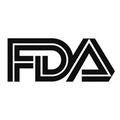FDA Approves Pembrolizumab Triplet for Advanced Esophageal/GEJ Carcinoma
The FDA has approved pembrolizumab in combination with platinum and fluoropyrimidine-based chemotherapy for the treatment of patients with metastatic or locally advanced esophageal or gastroesophageal junction carcinoma who are not eligible for surgical resection or definitive chemoradiation.

The FDA has approved pembrolizumab (Keytruda) in combination with platinum and fluoropyrimidine-based chemotherapy for the treatment of patients with metastatic or locally advanced esophageal or gastroesophageal junction (GEJ) carcinoma who are not eligible for surgical resection or definitive chemoradiation.1
Approval for this indication of pembrolizumab was granted based off of findings from the phase 3 KEYNOTE-590 trial (NCT03189719), which explored the triplet combination of cisplatin, fluorouracil (5-FU), and pembrolizumab in comparison with cisplatin and 5-FU alone.
“Because esophageal cancer generally has poor survival rates, new first-line therapies are urgently needed for these patients,” said Dr. Peter Enzinger, director, Center for Esophageal and Gastric Cancer, Dana-Farber/Brigham and Women’s Cancer Center. “Today’s approval of this indication for Keytruda introduces a new option, which has shown a superior survival benefit compared to FU and cisplatin alone, for newly diagnosed patients with locally advanced or metastatic esophageal or GEJ carcinoma that is not amenable to surgical resection or definitive chemoradiation, regardless of PD-L1 expression status and tumor histology.”
The multicenter, randomized, placebo-controlled trial enrolled 749 patients with metastatic or locally advanced esophageal or gastroesophageal junction carcinoma who were not candidates for surgical resection or definitive chemoradiation. Patients were randomized 1:1 to either the triplet or doublet arms. Treatment continued for 2 years or until disease progression, unacceptable toxicity, or study withdrawal.
The primary end points were overall survival (OS) in patients with esophageal squamous cell carcinoma (ESCC) who had a PD-L1 expression by combined positive score (CPS) ≥10 by investigator assessment per RECIST v1.1 as well as OS and progression-free survival (PFS) in patients with ESCC, those with CPS ≥10, and in all patients. Secondary end points included objective response rate (ORR) by investigator assessment. PD-L1 status was determined in the trial using the PD-L1 IHC 22C3 pharmDx kit.
The majority of the patients (83%) were male and had ESCC (73%).2
The median OS in the overall population was 12.4 months with pembrolizumab (95% CI, 10.5-14.0) compared with 9.8 months (95% CI, 8.8-10.8) with chemotherapy alone (HR, 0.73; 95% CI, 0.62-0.86; P <.0001). At 12 months, the OS rate was 51% with the pembrolizumab regimen versus 39% with chemotherapy, and at 24 months the OS rates were 28% and 16%, respectively.
The median PFS in the intention-to-treat population was 6.3 months with the triplet (95% CI, 6.1-6.9) versus 5.8 months (95% CI, 5.0-6.0) with the doublet (HR, 0.65; 95% CI, 0.55-0.76; P <.0001). At 12 months, the PFS rate with chemoimmunotherapy was 25% versus 16% with chemotherapy alone, and at 18 months, the rates were 12% and 6%, respectively.
The ORR was 45.0% in all patients treated the pembrolizumab combination versus 29.3% with the chemotherapy regimen (P < .0001). The median duration of response was 8.3 months with pembrolizumab and 6.0 months without.
Overall, treatment-related adverse events (TRAEs) were observed in 98.4% of the pembrolizumab arm and 97.3% of the chemotherapy arm, and grade 3 or higher TRAEs were observed in 71.9% and 67.6%, respectively. TRAEs leading to treatment discontinuation occurred in 19.5% of patients in the combination arm versus 11.6% with chemotherapy, and patients in 2.4% versus 1.4% of each arm, respectively, experienced TRAEs that resulted in death.
Immune-mediated adverse events and infusion reactions were reported in 25.7% of patients who received pembrolizumab and in 11.6% of patients who received chemotherapy alone; grade 3 or higher immune-related events were observed in 7.0% and 2.2% of patients in the investigational and control arms, respectively.
The most common adverse events (≥20%) with the pembrolizumab regimen were nausea, constipation, diarrhea, vomiting, stomatitis, fatigue/asthenia, decreased appetite, and weight loss.
The FDA has noted that the recommended dosing for pembrolizumab for patients with esophageal cancer is 200 mg every 3 weeks or 400 mg every 6 weeks.
“There have been few advances in improving survival outcomes in the first-line treatment setting for esophageal cancer over the last three decades,” said Roy Baynes, MD, PhD, senior vice president and head of global clinical development, chief medical officer, Merck Research Laboratories. “We are committed to putting patients first and continuing our research to help advance new approaches to potentially extend the lives of people with cancer.”
References
1. FDA approves Merck’s KEYTRUDA® (pembrolizumab) Plus platinum- and fluoropyrimidine-based chemotherapy for treatment of certain patients with locally advanced or metastatic esophageal or gastroesophageal junction (gej) carcinoma. News release. March 23, 2021. Accessed March 23, 2021. https://bit.ly/3rdCIqY
2. FDA approves pembrolizumab for esophageal or GEJ carcinoma. FDA. March 22, 2021. Accessed March 22, 2021. https://bit.ly/3vOKXxe
3. Kato K, Sun J, Shah MA, et al. Pembrolizumab plus chemotherapy versus chemotherapy as first-line therapy in patients with advanced esophageal cancer: the phase 3 KEYNOTE-590 study. Presented at: 2020 ESMO Virtual Congress; September 19-21, 2020; Virtual. Abstract LBA8_PR.









